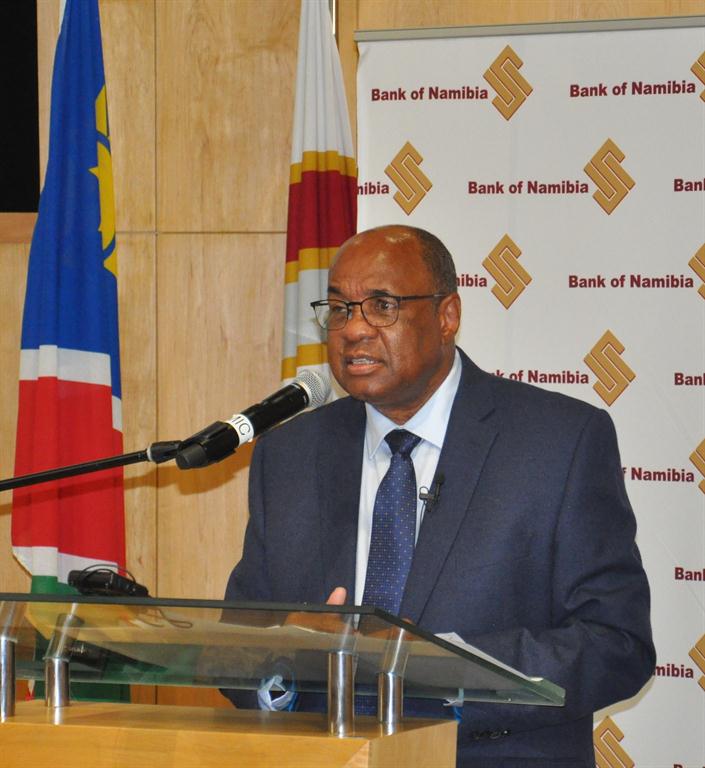Effective governance key to economic development
GDP per capita increased to N$ N$54 000 in 2020 from N$33 000 in 1990, an increase of N$21 000.
PHILLEPUS UUSIKU
If real Gross Domestic Product (GDP) achieved in 2020 is divided amongst the entire Namibian population of 2.5 million, each individual is likely to receive N$54 000 compared N$33 000 at independence in 1990.
Namibia significantly increased its GDP from N$50 billion in 1990 to N$134 billion in 2020, an increase of N$84 billion or 168%. This remarks were made by the central bank governor Johannes !Gawaxab last week at a public lecture held at the University of Namibia (UNAM) Oshakati campus under the theme “How does Namibia stack up-our own story”.
Namibia's real GDP growth has been strong as it grew at an average rate of 3.5% per annum since independence. However, the weak growth in recent years resulted from factors such as major investment projects coming to an end, low government revenue and fiscal consolidation measures aimed at strengthening long-term macro- stability, a weak global economy, the effects of the Covid-19 pandemic as well as persistent drought in prior years, he said.
!Gawaxab noted that poverty incidence levels reduced drastically from 69.3% to 17.4% in the same period. During the period under review, inflation was well contained averaging 5.5% during the last two decades while inflation has been below 4% since mid-2019.
Inequality
Furthermore, Namibia has made significant strides in addressing the distribution of income since independence in 1990. Namibia's efforts to reduce poverty have yielded fruits as the poverty ratio decreased significantly since 1990 in response to people finding gainful employment and government providing a safety net through social security payments.
“These gains have been recorded because of a combination of macroeconomic policies adopted by government and the drive of relevant stakeholders, which have transformed the country from a pariah state at independence into a modern state that punches above its weight on the continent,” he said.
However,!Gawaxab emphasized that the country needs to redouble its effort to further reduce poverty and income inequalities.
Lastly, the governor instilled hope that the current challenges are surmountable and can be addressed, through several targeted interventions such as the newly minted Hararmbee Prosperity Plan II: "We are mindful that investments in agriculture, green energy and technology, as well as general structural reforms and confidence in the economy, are key for the success of the Namibian story now and beyond.”
If real Gross Domestic Product (GDP) achieved in 2020 is divided amongst the entire Namibian population of 2.5 million, each individual is likely to receive N$54 000 compared N$33 000 at independence in 1990.
Namibia significantly increased its GDP from N$50 billion in 1990 to N$134 billion in 2020, an increase of N$84 billion or 168%. This remarks were made by the central bank governor Johannes !Gawaxab last week at a public lecture held at the University of Namibia (UNAM) Oshakati campus under the theme “How does Namibia stack up-our own story”.
Namibia's real GDP growth has been strong as it grew at an average rate of 3.5% per annum since independence. However, the weak growth in recent years resulted from factors such as major investment projects coming to an end, low government revenue and fiscal consolidation measures aimed at strengthening long-term macro- stability, a weak global economy, the effects of the Covid-19 pandemic as well as persistent drought in prior years, he said.
!Gawaxab noted that poverty incidence levels reduced drastically from 69.3% to 17.4% in the same period. During the period under review, inflation was well contained averaging 5.5% during the last two decades while inflation has been below 4% since mid-2019.
Inequality
Furthermore, Namibia has made significant strides in addressing the distribution of income since independence in 1990. Namibia's efforts to reduce poverty have yielded fruits as the poverty ratio decreased significantly since 1990 in response to people finding gainful employment and government providing a safety net through social security payments.
“These gains have been recorded because of a combination of macroeconomic policies adopted by government and the drive of relevant stakeholders, which have transformed the country from a pariah state at independence into a modern state that punches above its weight on the continent,” he said.
However,!Gawaxab emphasized that the country needs to redouble its effort to further reduce poverty and income inequalities.
Lastly, the governor instilled hope that the current challenges are surmountable and can be addressed, through several targeted interventions such as the newly minted Hararmbee Prosperity Plan II: "We are mindful that investments in agriculture, green energy and technology, as well as general structural reforms and confidence in the economy, are key for the success of the Namibian story now and beyond.”





Kommentar
Allgemeine Zeitung
Zu diesem Artikel wurden keine Kommentare hinterlassen